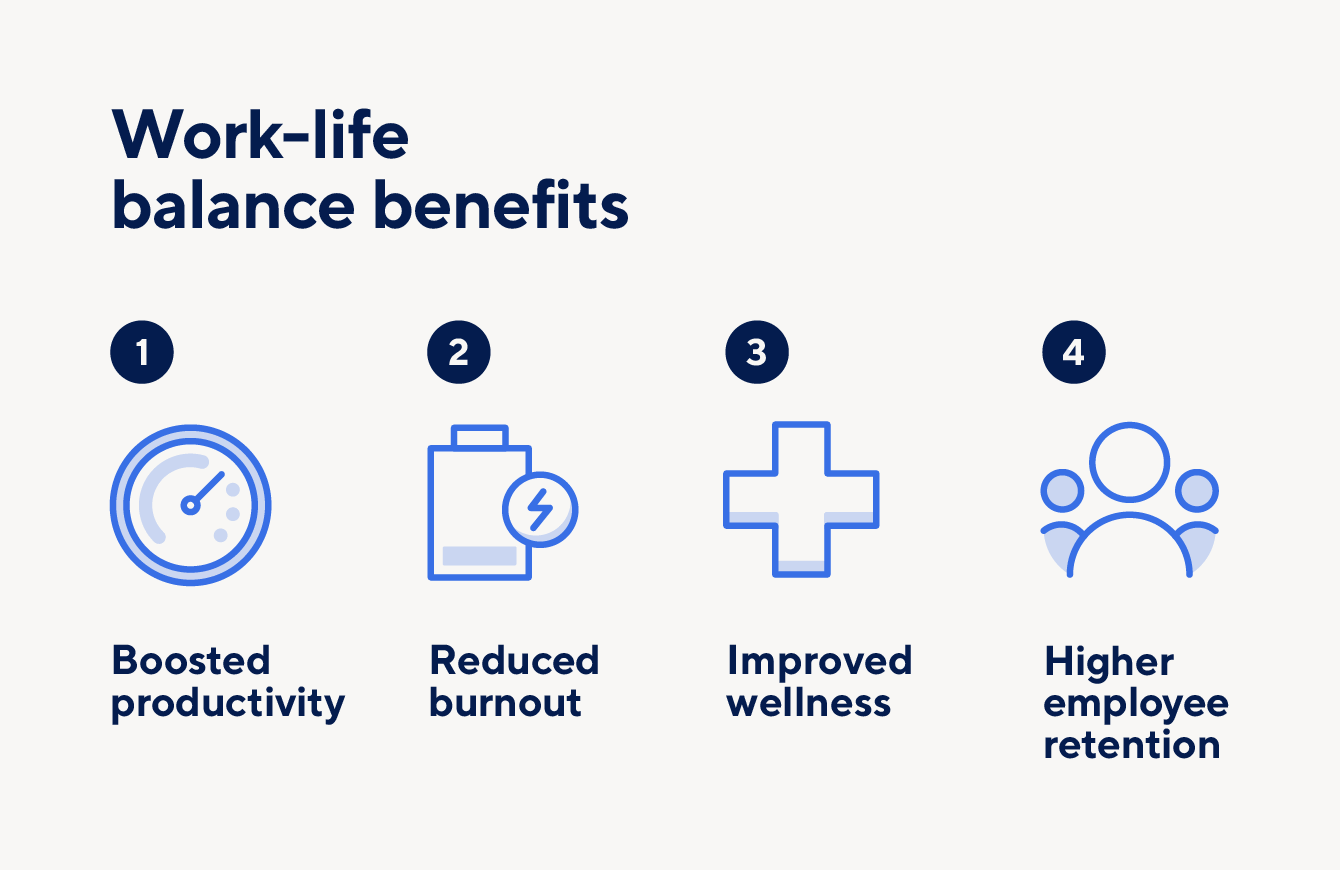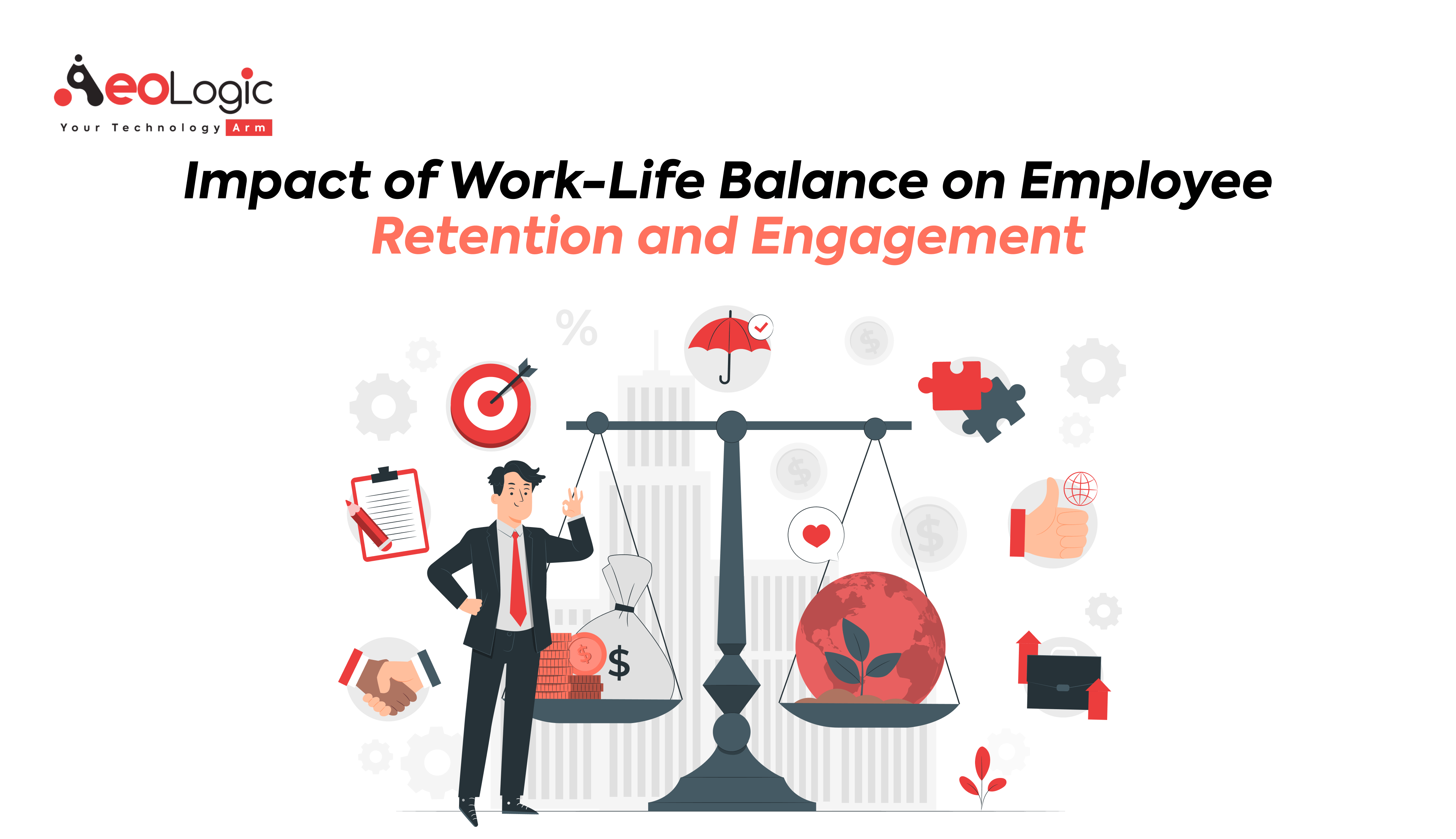Employer Branding and Employee Work-Life Balance
How Does Your Employer Brand Shape Work-Life Balance?
Employer branding and positive team engagement initiatives establish the foundation for work-life balance, as they by nature promote flexible work arrangements like work-from-home options, wellness programs, and workplace hours flexibility.
Your employer brand should at all times, demonstrate your commitment to supporting employee well-being and work-life balance. After all, your employees are adults, and you can let them effectively manage their personal and professional lives without sacrificing one for the other.
What Is The Role of Work-Life Balance in Employee Engagement?
So if you let your employees work from home or leave early to pick up their children, will they take you for granted?
Chances are, absolutely not - it usually goes the opposite way! When you promote work-life balance, you are investing in your employees, and they will, in turn, invest more of their time, effort, and care into your company and your customers.
When employees are able to maintain a healthy equilibrium between their work responsibilities and personal lives, they experience increased morale, motivation, and overall job satisfaction. Achieving work-life balance enables employees to allocate time and energy to different aspects of their lives, including family, hobbies, and self-care. This balance allows individuals to recharge and rejuvenate, leading to a higher level of engagement.
Empowering employees is key to employee advocacy too!
How Does Work-Life Balance Improve Employee Retention?
By promoting work-life balance, you can create an environment where your employees feel supported and valued. This, in turn, enhances their commitment to your company and their role within it.
Employees who are satisfied with their work-life balance are more likely to remain loyal and be personally invested in the success of your company.
Organizations that prioritize work-life balance attract top talent and can retain their employees for the long term. Employees feel a greater sense of job security and fulfillment when they can maintain a healthy work-life integration, setting the stage for a thriving and engaged workforce.
To enhance employee engagement, consider implementing policies and practices that support work-life balance. This may include offering flexible work hours, remote work options, and wellness programs.
Employer Branding and Work-Life Balance: Crafting the Perfect Message
This involves going beyond an email or written message and actually showcasing your organization's commitment to work-life balance through media like video that can capture, engage, and inspire your employees.





However, work-life balance is essential for fostering happiness, fulfillment, and success both personally and professionally. It is a shared responsibility between individuals and employers to prioritize work-life balance and create environments that support the holistic well-being of employees.
ReplyDeleteis true. Work-life balance is essential for fostering happiness, fulfilment, and success both personally and professionally.
ReplyDeleteI also appreciate your discussion on the role of leadership in fostering a culture that values work-life balance.
ReplyDeleteWork-life balance is important to every employee and employees should know how to balance their work related tasks and personal tasks accordingly.
ReplyDeleteAgreed
DeleteThis is a very good article for nowadays. Work life balance is more crucial because of this hybrid working model.
ReplyDeleteThis smart blog explores how flexibility and well-being are emphasized by employer image and how it affects work-life balance. It emphasizes the advantages—such as higher participation and retention—and provides practical integration principles. In general, it promotes company branding initiatives that give employee well-being the highest priority.
ReplyDeleteEncouraging work-life balance builds employee loyalty and dedication. It attracts top talent and improves job satisfaction, leading to a more engaged workforce. Implementing flexible policies like remote work and wellness programs can help employees maintain a healthy work-life balance, contributing to their overall happiness and productivity within the company.
ReplyDeleteThanks you for all the insightful comment
DeleteThe article discuss work-life balance on general grounds. However It would be debatable if a comparison is done on the work-life balance between private sector and the public sector in Sri Lankan context. 😉
ReplyDeleteyes both sides may have plus or minus points
DeleteThe private sector provides a better work-life balance compared to the public sector. But in global contests, this will definitely change according to the region.
DeleteYou've made an interesting observation! Indeed, work-life balance perceptions can vary between the private and public sectors and can also differ globally based on regional norms and practices. It's essential to consider these factors when evaluating workplace preferences and trends.
Delete
ReplyDeleteWork life balance in COVID 19 pandemic get the opportunities to work from home and still that flexibility continues in some companies around the world enhance increase the morale and decrease working stress of the employee's.
You're spot on! The COVID-19 pandemic has enabled remote work flexibility, boosting employee morale and reducing work-related stress. This shift has positively transformed work-life balance in many companies worldwide.
DeleteWork life balance is a must for all the employee's But with the employee branding they can brainwash the employee and loot their personal time. Most of the employer's do this with the loyalty they receive from the employees
ReplyDeleteI understand your concern about the potential misuse of employer branding to manipulate employee perceptions and infringe on work-life balance. It's essential for organizations to prioritize genuine employee well-being and maintain transparency in their branding efforts.
DeleteYes Jagath, as you have mentioned the employer branding and positive team engagement strategies will help build the foundation for work-life balance, by implementing flexible work arrangements like work-from-home options, wellness programs, and workplace hours flexibility. However, there can be drawbacks when it comes to motivation to work and the balance between the home and office work. The flexibility can be a problem sometimes, when they want you to work even after office hours.
ReplyDeleteAbsolutely, you make a valid point! While employer branding and flexible arrangements promote work-life balance, they can also blur boundaries, affecting work motivation and clear separation between home and office hours. Balancing flexibility with clear expectations is crucial.
DeleteWork life balance is important factor to retain the employee within company. If the company having good brand name of having better work life balance with organization culture, if the new joined employee will be satisfied and retained within the company. This would be happen if the company will facilitated for them. Eg: If the company have add the criteria as working hours is flexible which in company policy employee may be do work in effectively. This is depend the employee job role to perform.
ReplyDeleteAbsolutely, you're right! A company's reputation for work-life balance and a positive culture boosts employee retention. Flexible working hours, aligned with job roles, enhance job satisfaction and effectiveness.
Delete
ReplyDeleteYour employer brand shapes work-life balance by promoting flexibility and wellness, fostering employee satisfaction and engagement. When employees feel supported, they invest more in their work and stay loyal to the company, contributing to its success. Prioritizing work-life balance attracts and retains top talent, creating a thriving workforce.
Amila you are exactly right! Employer branding that champions flexibility and wellness enhances employee satisfaction and commitment. Supported employees are more loyal and contribute significantly to company success. Emphasizing work-life balance attracts and retains top talent, building a vibrant workforce.
ReplyDelete